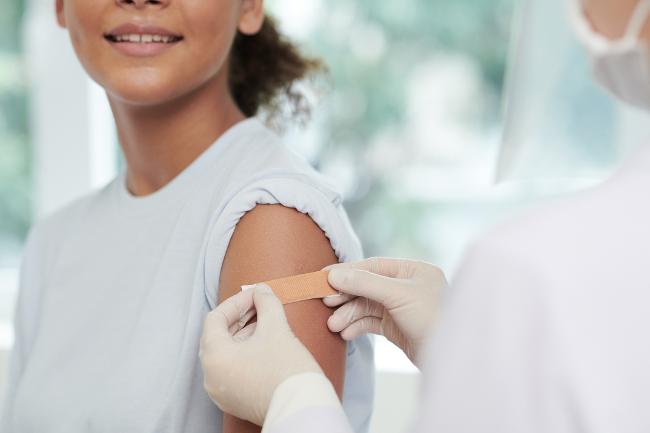European Immunisation Week 2025: Strengthening Vaccination Protection Against Measles and HPV
Vaccinations are one of the most effective preventive healthcare measures. European Immunisation Week, which takes place this year from 27 April to 3 May 2025, is an initiative from the Regional Office for Europe of the World Health Organization (WHO). Every year this campaign emphasises the importance of vaccination protection for the entire population. The aim of the initiative is to achieve a higher vaccination rate, as called for in the European Immunization Agenda 2030. The Paul-Ehrlich-Institut, the Federal Institute for Vaccines and Biomedicines, is actively participating in the campaign again this year and is focusing on measles vaccination and vaccination against human papillomavirus (HPV). Both vaccinations effectively protect against in some cases serious diseases and are essential for sustainable disease prevention. As the responsible higher federal authority, the Paul-Ehrlich-Institut evaluates aspects such as the quality, efficacy, and safety of vaccines in Germany and, within the framework of centralised marketing authorisation procedures at the European Medicines Agency (EMA), for Europe. The Institute thus makes an important contribution to public health.
 Source: Dragon Images / Shutterstock
Source: Dragon Images / Shutterstock
Reliable Protection Against Highly Contagious Measles Viruses
Measles is a highly contagious viral disease typically associated with fever, cough, runny nose, conjunctivitis, and a characteristic rash. Infants, adults and persons with weakened immune systems are particularly at risk for complications such as a middle ear infection, pneumonia, and brain inflammation. In 2024 the number of measles cases in the WHO's "European Region" – which includes all of Europe (except Liechtenstein), Israel, and all former Soviet republics – was higher than it has been for over 25 years. The German Standing Committee on Vaccination (Ständige Impfkommission, STIKO) recommends two measles vaccinations from the age of 11 months. Several combination vaccines, known as MMR vaccines, are available in Germany. These vaccines also protect against mumps and rubella at the same time. MMRV vaccines are also available, which provide additional protection against varicella (chickenpox). Double measles vaccination provides lifelong protection against disease for 98 to 99 per cent of the vaccinated population.
Reduce Cancer Risk with HPV Vaccination
Human papillomaviruses (HPV) can cause various cancers, including cervical cancer, but also anal cancer or certain forms of head and neck tumours. The STIKO recommends the HPV vaccine for girls and boys aged 9 to 14 years – ideally before first sexual contact. One vaccine authorised in Germany for the prevention of infections with HPV is a nine-valent vaccine that offers protection against nine different types of HPV.
Protection Through Vaccination – Check Your Vaccination Status Now
Complete immunisation against measles and HPV is an effective and at the same time easily implementable healthcare measure. The European Immunisation Week is a good opportunity to check your vaccination status against measles and HPV and catch up on any missed vaccinations. Early vaccinations can prevent diseases before they occur – and significantly reduce the risk of complicated diseases and long-term health damage.



